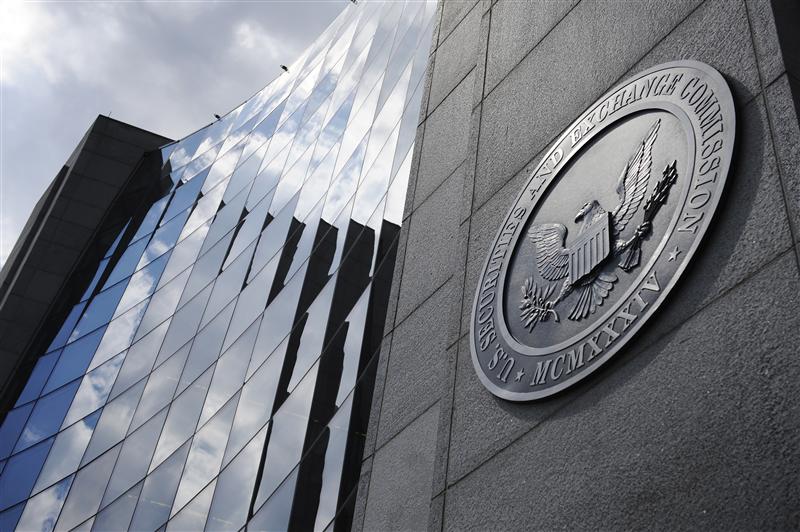

Fiduciary advocates are raising an alarm about what they say is the SEC’s effort to limit the use of the term ''fiduciary" in a client disclosure document being used by investment advisers and brokers.
What caught the attention of the Institute for the Fiduciary Standard was an answer that was recently added to a list of frequently asked questions about Form CRS, the client relationship summary that was part of the rulemaking package that included Regulation Best Interest, the broker standard of conduct.
The FAQ says that prescribed language prohibits investment advisers from using the term “fiduciary” in certain parts of Form CRS. It goes on to say that even outside of those areas, advisers should be cautious in using “fiduciary” or “fiduciary duty.”
Brokers are governed by the Reg BI best interest standard while advisers are overseen separately under the Investment Advisers Act. Although the adviser law doesn’t mention fiduciary duty, legal precedent has established that advisers are fiduciaries to their clients.
But Knut Rostad, president of the Institute for the Fiduciary Standard, said that based on the wording of the FAQ, the Securities and Exchange Commission is trying to scrub the term from Form CRS.
“It has essentially slammed the door shut,” Rostad told reporters on Wednesday. “Its language is clear. We believe that it leaves no plausible and meaningful way for an investment adviser to tell investors the truth about their fiduciary status.”
The SEC did not respond to a request for comment.
Form CRS, which went into force in June 2020 along with Reg BI, is a two-page document that outlines an advisory or brokerage firm’s services, fees, conflicts of interest, disciplinary history and other information. The form, which is four pages for dually registered advisers, must be filed with the SEC and made available to retail investors on a firm’s website.
Since its implementation, the SEC has released guidance and conducted enforcement related to Form CRS.
In the FAQ, the SEC cautions investment advisers against using the terms “fiduciary” or “fiduciary duty” in Form CRS if doing so would be “extraneous” or “unresponsive” to a certain item or would exaggerate an adviser’s description of the firm.
“For example, in the staff’s view, embellishing factual statements about the capacity or services of an investment professional or firm with phrases such as ‘an investment adviser who is held to the fiduciary standard,’ [italics by SEC] is likely to be inappropriate,” the FAQ states.
That doesn’t leave any leeway for advisers to tout their standard of care, Rostad said.
“Is there anything that’s not inappropriate, frankly?” he said. “I don’t know what you can put down there now.”
Todd Cipperman, managing director at Foreside, a compliance consulting firm, isn't surprised by the language in the FAQ. He said the point of the Reg BI rulemaking was to bring the standards of conduct for advisers and brokers closer together.
“They don’t want [some] advisers giving the impression they’re better or different from other advisers,” Cipperman said in an interview.
But Rostad and other advocates argue that fiduciary duty offers stronger investor protection than the broker best interest standard. They have been calling for changes to Form CRS that allow advisers to distinguish themselves from brokers.
Jeffrey Lang, a partner at Stark & Stark, encouraged the SEC to make explicit when advisers can describe themselves as fiduciaries on Form CRS.
“It’s going to be helpful to everybody if more guidance can be given relative to how the term can be used,” Lang said during Wednesday’s media availability.
SEC Chairman Gary Gensler has indicated he will use guidance and enforcement to ensure that Reg BI lives up to its investor protection promises. Recently, the SEC released a staff bulletin about how brokers and advisers should handle account recommendations under the rule.
Rostad said he's seeking meetings with Gensler and SEC commissioners to ask them to address the limitations on “fiduciary” in Form CRS.
Differences between Reg BI and the adviser standard will be determined by how the SEC and courts interpret them.
“I’m not sure how much daylight there is between best interest and fiduciary,” Cipperman said. “We won’t know until there’s litigation.”

Relationships are key to our business but advisors are often slow to engage in specific activities designed to foster them.

Whichever path you go down, act now while you're still in control.

Pro-bitcoin professionals, however, say the cryptocurrency has ushered in change.

“LPL has evolved significantly over the last decade and still wants to scale up,” says one industry executive.

Survey findings from the Nationwide Retirement Institute offers pearls of planning wisdom from 60- to 65-year-olds, as well as insights into concerns.
Streamline your outreach with Aidentified's AI-driven solutions
This season’s market volatility: Positioning for rate relief, income growth and the AI rebound
